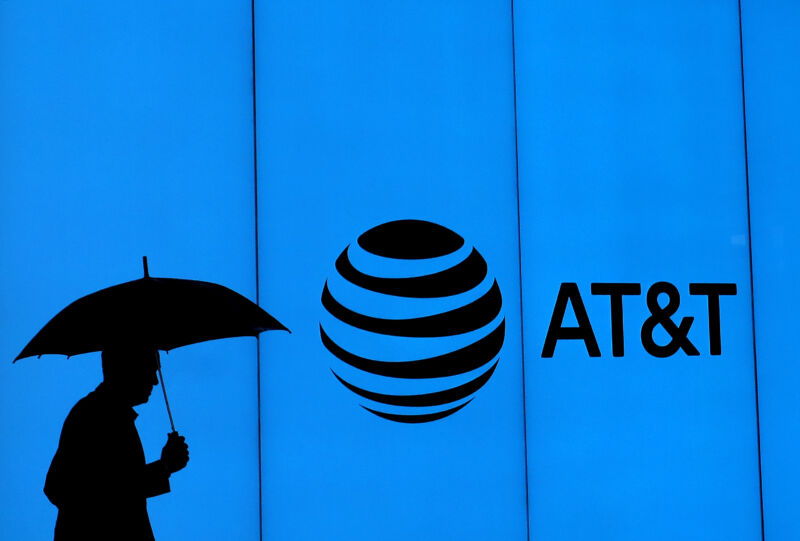

reader comments
129 with 99 posters participating
AT&T is supporting President Trump’s crackdown on Big Tech, arguing in a blog post yesterday that online platforms should have to uphold “neutrality” on the Internet. The debate over websites ignited by Trump’s petition is more important than the years-long debate over net neutrality rules applied to Internet service providers, AT&T claimed. The company said it will file comments with the Federal Communications Commission this week as the FCC continues its review of the Trump administration’s petition.
The phrase “net neutrality” almost always refers to Internet service providers like AT&T, not websites. The general idea is that ISPs should have to act as neutral conduits, connecting Internet users to any (legal) website or online service they want to access and without forcing websites to pay tolls to reach users.
When the Obama-era FCC imposed net neutrality rules in 2015—prohibiting ISPs from blocking or throttling traffic and from giving priority to Web services in exchange for payment—AT&T sued the commission in an attempt to overturn the rules. That lawsuit failed, but AT&T and other ISPs got their wish when the Trump-era FCC deregulated broadband and eliminated net neutrality rules.
Now, AT&T says the Trump administration’s proposal relating to websites is “the neutrality debate we need to have.” The Trump administration petition, spurred by the president’s anger at Twitter and Facebook for alleged anti-conservative bias, asks the FCC to issue a new interpretation of Section 230 of the Communications Decency Act that would limit online platforms’ legal protections for hosting third-party content when the platforms take down or alter content they consider objectionable.
The petition is opposed by FCC Democrats who say the commission should not be the president’s “speech police.” FCC Republican Michael O’Rielly is also skeptical, arguing that the First Amendment protects the editorial decisions of online platforms. Trump responded by pulling O’Rielly’s re-nomination for another term, which could force him to leave the FCC at the end of 2020.
AT&T doesn’t seem to share O’Rielly’s First Amendment concerns. In yesterday’s blog post, AT&T Executive VP Joan Marsh argued:
Five tech giants (Facebook, Amazon, Apple, Microsoft, Google) alone make up about 25 percent of the S&P 500 with valuations growing, even in a pandemic. The decisions these companies make on a daily basis—which search results to rank first, which products to promote, which news stories to feature, and which third parties they will deal with and on what terms—shape virtually every aspect of America’s economic, social and political life. Yet those decisions are shrouded in obscurity, away from public view, in a world where black-box algorithms and non-negotiable terms pick winners and losers in every sphere of public life.
In comments this Wednesday, AT&T will join the growing consensus of voices concluding that online platforms should be more accountable for, and more transparent about, the decisions they control that fundamentally shape how we communicate, learn, shop, and are informed and entertained.
What AT&T wants
While AT&T’s full proposal isn’t out yet, the blog post argued that “dominant online platforms owe the public greater transparency about the choices made on their platforms.” AT&T said that transparency is “table stakes” in broadband.
Conceivably, the FCC’s transparency rules for ISPs could provide a model for regulating websites. Under FCC Chairman Ajit Pai’s lenient net neutrality regime, ISPs are allowed to block, throttle, and charge for prioritization as long as they disclose the fact that they are doing so.
But AT&T appears to want a stricter standard for online platforms, one that would force websites to change how they moderate content instead of merely disclosing how they moderate. In addition to transparency requirements for websites, AT&T argued that “Section 230 immunity should be modified to reduce the gross disparities in legal treatment that have emerged between the dominant online platforms and the traditional purveyors of third-party content, such as book publishers, newspapers, or radio and television businesses. There is no longer any reason that the nation’s most powerful online platforms should enjoy legal immunities unavailable to similarly situated traditional companies.”
AT&T finished its post by comparing the FCC’s Section 230 proceeding to the net neutrality debate and concluding that the Section 230 debate is the one “that really matters.” AT&T wrote:
And as the net neutrality debate soldiers on, as it surely will, the Section 230 debate and the broader tech scrutiny underway should serve as a reminder of where the power to control access to content, websites and e-services on the Internet really resides—and the neutrality debate that really matters. Adopting an ISP-only “neutrality” regime is as backwards looking as it is mis-targeted. It would be akin to landing the plane, but on the wrong day, at the wrong gate, and in the wrong airport.
Though the Trump administration petition was spurred by alleged anti-conservative bias, AT&T’s blog post did not accuse any online platform of political bias.
FCC may not have authority
AT&T’s argument got a welcome response on Twitter from FCC Republican Brendan Carr, who has repeatedly endorsed Trump’s Section 230 proposal. Carr has claimed that Twitter moderating Trump tweets amounts to “punishing speakers based on whether it approves or disapproves of their politics,” and that Facebook is trying to “tilt an election against the incumbent president.”
But the Trump administration petition doesn’t appear likely to be approved by the current FCC majority—though that could change if Trump wins a second term and is able to put new members on the commission. Besides the First Amendment concerns, the FCC must also decide whether it has the authority to reinterpret Section 230 and whether doing so would be a good idea. FCC Democrat Geoffrey Starks recently said that the Trump administration “has not made the case that Congress gave the FCC any role here. Section 230 is best understood as it has long been understood: as an instruction to courts about when liability should not be imposed.”


